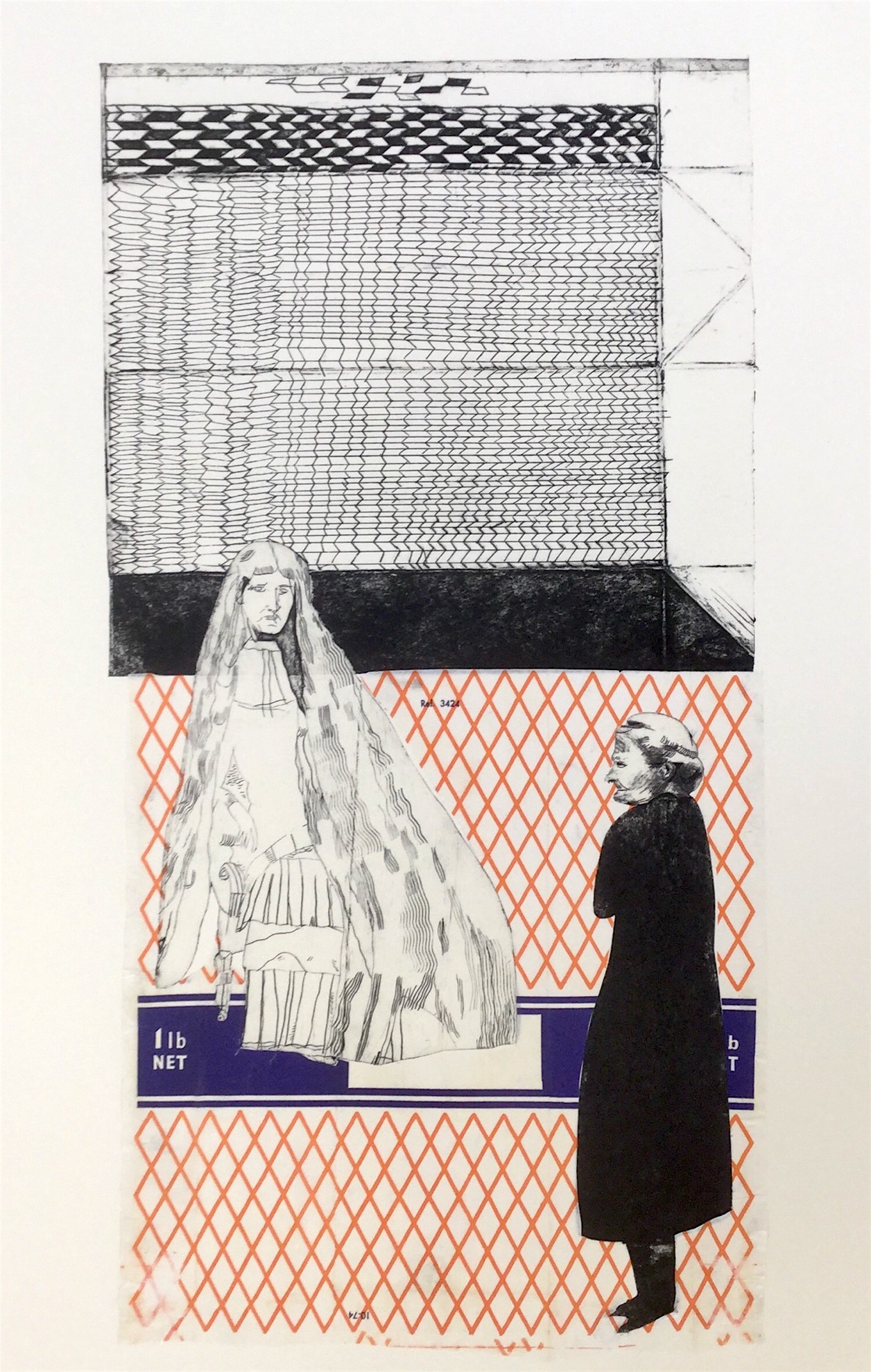Abstract
Rubber stamping, Tetra Pak print and kitchen sink lithography were some of the open-ended, exploratory processes, my inquisitiveness thrived upon during the printmaking MA at the University of the West of England. My curiosity always brought me back to exploring such techniques and material with no established orthodoxy or long tradition.
On reflection, I believe the root of my practice was in part a response to the illustration/art history context in which I was first introduced to print. Art and technology were aligned; print was a commercial means to reproduce imagery. Slides of the technical accomplishments of master printmakers were projected each week, although inspiring they were also rather intimidating (how could we teenage students ever amount to such heights!) The philosophy of the Bauhaus-inspired books written by Peter Green, and published by Batsford, I found at the local library were more appealing and the printmaking within more attainable by comparison.
During my MA second year along came Covid 19 and the lockdown. My printing practice was ideally suited to this new environment. I worked without a printing press, using pasta machines, spoons and rolling pins. Plastic 4-litre bottles instead of copper plates, cereal packets and coffee cups for collagraph print. Each outcome sparked further experiments.
Whilst these experiments seemed outside the world of traditional print, they were, I reflected, informed by it. To create clear, readable print impressions I needed specific inks and paper. It required a knowledge of printing pressure in the pasta machine press for instance. Drypoint tools were purchased to create effective marks. There was a reciprocal relationship, in exploring print this way, it helped me to understand, and imbed traditional forms of printmaking. This alternative unorthodox form of print was my gateway into fully understanding and appreciating the field of printmaking.

This work is licensed under a Creative Commons Attribution 4.0 International License.
Copyright (c) 2023 Stephen Fowler
